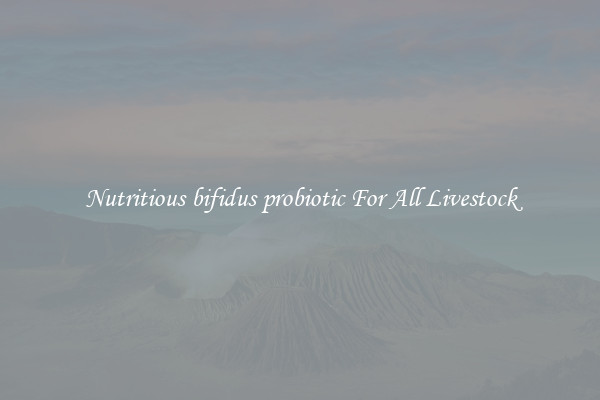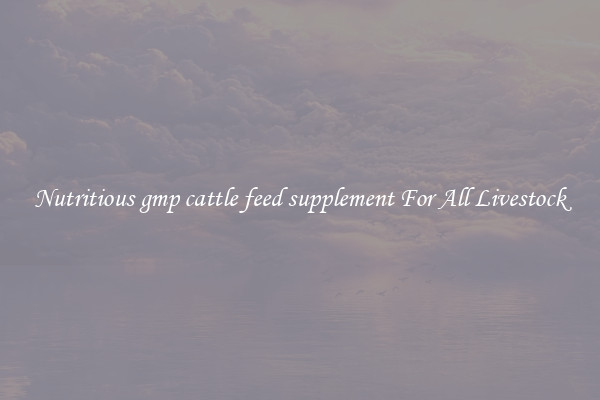Nutritious bifidus probiotic For All Livestock
The use of probiotics in livestock feed has gained significant recognition in recent years due to their numerous health benefits. One such probiotic that has proven to be highly effective in promoting the overall wellbeing of animals is bifidus.

Bifidus is a type of bacteria that naturally resides in the gut of animals, including livestock. It belongs to the group of beneficial bacteria, commonly known as probiotics, which play a vital role in maintaining the digestive health of animals.
One of the significant advantages of administering a nutritious bifidus probiotic to livestock is its positive impact on gut health. The digestive system of animals, just like humans, is populated by various microorganisms, both good and bad. The balance between these microorganisms is crucial for proper digestion and nutrient absorption. Bifidus helps maintain this balance by inhibiting the growth of harmful bacteria in the gut and promoting the growth of beneficial bacteria.
Furthermore, bifidus probiotics have been linked to improved nutrient utilization in animals. Livestock that are fed with a bifidus-rich diet have shown enhanced digestion and absorption of essential nutrients, resulting in improved growth rates and overall performance. This is especially important in the context of livestock production, as optimizing feed efficiency is crucial for ensuring economic viability and sustainable farming practices.
Additionally, bifidus probiotics have also been found to boost the immune system of livestock. By maintaining a healthy gut microbiota, bifidus helps enhance the animal's immune response, making them more resistant to common diseases and infections. This, in turn, reduces the need for antibiotics and other medications, promoting a more sustainable and environmentally friendly approach to animal health management.
Moreover, bifidus probiotics have shown promising results in reducing the prevalence and severity of gastrointestinal disorders in livestock. Diarrhea, for instance, is a common problem that can be detrimental to the health of animals and cause significant economic losses for farmers. Bifidus helps strengthen the intestinal barrier, preventing the invasion of pathogenic bacteria and reducing the risk of diarrhea and other digestive disorders.
In conclusion, the inclusion of a nutritious bifidus probiotic in livestock feed has proven to be highly beneficial for animals. By promoting gut health, improving nutrient utilization, boosting immunity, and reducing gastrointestinal disorders, bifidus probiotics contribute to the overall well-being and productivity of livestock. Incorporating probiotics into the diets of all livestock is a promising strategy to enhance animal health, reduce the reliance on medications, and improve the sustainability of livestock production.

View details

View details

View details

View details








